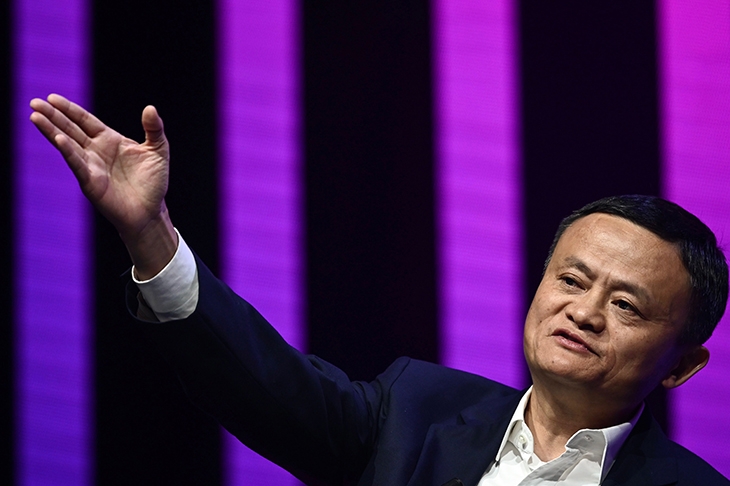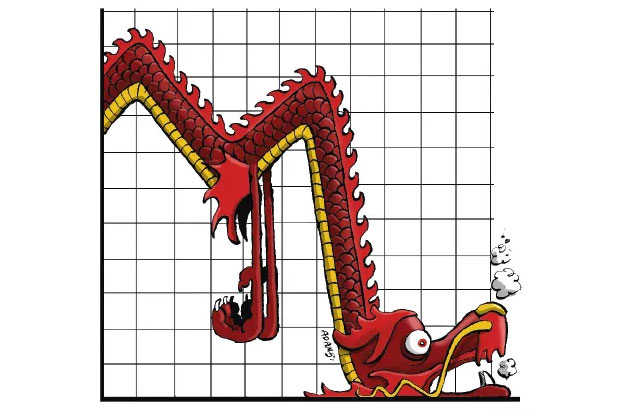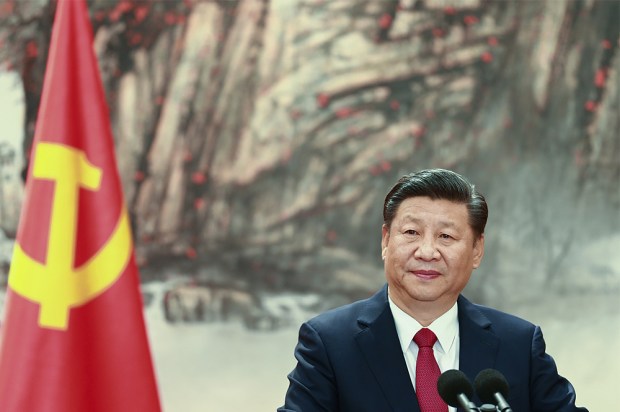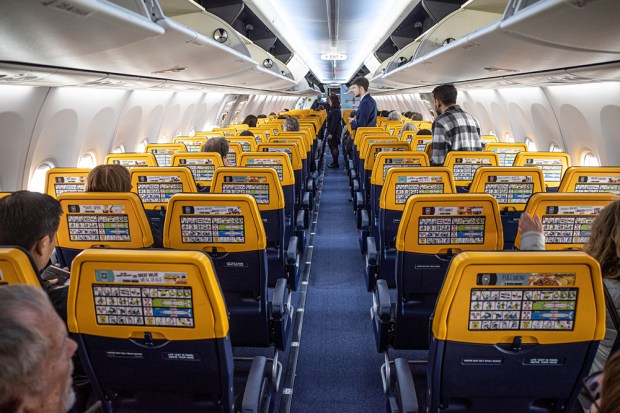FTSE indices soared as the Biden Bounce met vaccine euphoria, underpinned by the Bank of England’s announcement of another £150 billion injection of quantitative easing. It was heartening to see shares in airlines, hotels and Rolls-Royce, the aero engine maker, perking up — and hardly surprising to see lockdown winners such as Ocado and Just Eat among the fallers. Across the Atlantic, even mighty Amazon shed 5 per cent on Monday.
But stock markets are one thing and real life is another. What matters in the short term is whether Boris Johnson can get us out of the lockdown he clearly didn’t want before the tide of redundancies, heading towards 150,000 a month, crushes the prospects for a consumer-led recovery, even after vaccine distribution has begun.
What matters too, right now and all the more so after Donald Trump is finally dragged from the White House, is that the government does not blunder its way to a final Brexit that not only makes life hell for the many vital British businesses who feel Downing Street doesn’t give a toss about them — but also manages to sour the start of a new era of UK-US relations.
Joe Biden is by all accounts a pragmatist who will depersonalise international relations and order his officials to deal simultaneously with the EU over punitive tariffs (new ones came into effect this week, relating to a long-running fight over subsidies for Airbus and Boeing) and the UK over future trade. So there’s no reason to expect slower negotiations or a worse outcome than we might have had from Trump.
But when the President-Elect cites protection of the Good Friday agreement as a red line, he’s not grandstanding: he’s expressing a deeply held bipartisan Washington position. Nothing so far announced about arrangements for regulatory checks and continuity of trade across the Irish border suggests our ministers have any sort of grip on the issue. The horizon looks brighter, but be under no illusion: as normality returns, so — inevitably — will the Irish question.
Next year’s agenda
Shares in Zoom, the ubiquitous video–conferencing platform, fell off a cliff as investors turned to betting on travel-related stocks as a proxy for that longed-for return to normality. It’s a cliché to say how tired we all are of talking into our laptops, but digital technology has made possible many extraordinary events during this stay-at-home year, not least because important people have had no excuse not to participate.
Witness this week’s Green Horizon Summit to discuss the intersection of international finance and climate change action, organised from London for 30,000 viewers worldwide, with a line-up that included Bill Gates, Christine Lagarde, UN secretary-general António Guterres and the Prince of Wales. Rishi Sunak was also online to announce the UK’s first ‘green gilt’ bond issue and the introduction of mandatory climate-related financial disclosures for companies by 2025.
If that didn’t make headlines amid the coverage of Biden and vaccines, there’s no doubt that the conference’s themes will surge in next year’s news agenda as the pandemic fades. What’s fascinating to watch is the corresponding rise of Mark Carney. An uncharismatic fish out of water as governor of the Bank of England, he’s now the emergent global statesman of green finance.
Hammered down
What would have been the world’s biggest stock-market launch, the $37 billion flotation in Shanghai and Hong Kong of a Chinese company called Ant Group, was blocked last week by Beijing regulators, some reports saying the decision had been ordered by President Xi himself. That’s quite a story, given that the deal would have been bigger even than last year’s market debut for the oil giant Saudi Aramco — and that most of us have barely heard of Ant, an online payments and loans business spun out of Alibaba, the e-retailer and tech conglomerate founded by the colourful entrepreneur Jack Ma. And it’s Ma himself who seems to be the problem, having criticised China’s sclerotic state-dominated banking sector and its regulators while creating, in Ant, a huge but largely unregulated lender. Ma’s international-rockstar-of-tech profile has made him highly conspicuous among China’s new billionaires — and under the neo-Maoist orthodoxy of Xi Jinping, that’s a dangerous place to be if you’re unwilling to parrot the party line. No doubt there’s a Chinese equivalent of the Japanese proverb: ‘The nail that sticks up gets hammered down.’
Be fair to landlords
Most of us wore Clarks shoes as children. That’s probably why Somerset-based C. & J. Clark still commands brand loyalty among the English middle classes, even if it closed its last UK factory last year. So you may have been glad to hear that Clarks is to be rescued, after a run of falling sales and the impact of lockdown, by a £100 million capital injection from LionRock Capital, a Hong Kong private equity firm, which will acquire a majority holding while members of the Clark dynasty — descendants of the brothers Cyrus and James Clark who began making sheepskin slippers in 1828 — retain a minority.
The value of the family’s shares, estimated at £400 million last year, will have shrunk dramatically, but they’re still due some dividends out of the rescue package. So far so good. The other half of the deal, however, is a ‘company voluntary arrangement’ which will force the landlords of Clarks’ 320 shops (who can’t block the arrangement if other creditors outvote them) to accept a percentage of revenues rather than a fixed rent. For 60 of the shops, this apparently means nil rent. Is that an equitable way to spread pandemic pain? Landlords are often labelled ‘greedy’ when tenants are struggling to survive, but on this occasion I find my sympathies leaning the other way. Cyrus and James, devout Quaker believers in fair dealing, must be spinning in their graves.
Got something to add? Join the discussion and comment below.
Get 10 issues for just $10
Subscribe to The Spectator Australia today for the next 10 magazine issues, plus full online access, for just $10.
You might disagree with half of it, but you’ll enjoy reading all of it. Try your first month for free, then just $2 a week for the remainder of your first year.















Comments
Don't miss out
Join the conversation with other Spectator Australia readers. Subscribe to leave a comment.
SUBSCRIBEAlready a subscriber? Log in